Unlock Your Potential: Discover CBD’s Role in Athlete Recovery
As athletes, we are constantly pushing our bodies to the limit, striving to achieve peak performance and faster recovery. That's where CBD comes in. CBD, or cannabidiol, has gained significant attention for its potential benefits in athlete recovery and enhancing performance. By incorporating CBD into our training regimens, we can tap into its natural healing properties and unleash our full potential.
Key Takeaways:
- Discover the role of CBD in athlete recovery
- Learn how CBD can aid in muscle recovery and reduce soreness
- Explore the potential benefits of CBD for sports performance
- Understand how CBD can support post-workout recovery
- Unlock your athletic potential with CBD's healing properties
Unveiling the Nature and Potential of Cannabidiol
Cannabidiol (CBD), a compound found in the cannabis plant, offers exciting possibilities for athletes looking to optimize their recovery and performance. CBD interacts with the body's endocannabinoid system (ECS), a complex network of receptors that regulates various physiological processes.
Research suggests that CBD's potential benefits include reducing inflammation, managing pain, improving sleep quality, and promoting overall well-being. Unlike tetrahydrocannabinol (THC), CBD does not produce psychoactive effects, making it a safe and viable option for athletes.
By incorporating CBD into their training regimens, athletes can tap into its potential to support their bodies' natural recovery mechanisms and enhance their overall performance.
Understanding the Endocannabinoid System
The endocannabinoid system (ECS) is a complex network of receptors found throughout the human body. Its primary function is to help maintain homeostasis, or balance, in various bodily processes such as mood, sleep, appetite, immune response, and pain perception. The ECS consists of three main components: endocannabinoids, receptors, and enzymes.
Endocannabinoids are naturally occurring cannabinoids produced by the body. Receptors, known as CB1 and CB2 receptors, are found on the surface of cells and interact with endocannabinoids. Enzymes, such as fatty acid amide hydrolase (FAAH) and monoacylglycerol lipase (MAGL), break down endocannabinoids after they have fulfilled their function.
CBD interacts with the ECS by indirectly influencing the receptors and enzymes. Although the exact mechanisms are still being studied, CBD is thought to modulate the activity of the ECS, enhancing its ability to maintain balance in the body.
| Benefits of CBD | How CBD Works |
|---|---|
| Reduces inflammation | Modulates the activity of pro-inflammatory molecules and immune cells |
| Manages pain | Interacts with receptors involved in pain perception and reduces the release of pain-inducing molecules |
| Improves sleep quality | Enhances relaxation and reduces anxiety, promoting restful sleep |
| Promotes overall well-being | Supports the body's natural processes and helps maintain balance in various physiological systems |
Exploring the Impact of CBD on Performance Enhancement
The use of CBD in the realm of sports and athletics is gaining significant attention due to its potential to enhance performance and support recovery. Athletes are increasingly turning to CBD for its ability to promote muscle repair, reduce inflammation, and contribute to overall well-being. In this section, we will delve into the various ways CBD can positively impact athletic performance, including its role in muscle repair, its synergy with ice baths, its incorporation with essential vitamins, and its support for immune function.
CBD for Muscle Repair
One of the key benefits of CBD for athletes is its potential to aid in muscle repair. Intense physical activity often leads to micro-tears in muscle fibers, resulting in muscle soreness and inflammation. CBD's anti-inflammatory properties can help alleviate these symptoms and expedite the recovery process. By reducing inflammation and promoting cell regeneration, CBD may contribute to faster muscle repair and enhance an athlete's ability to bounce back from intense training sessions.
CBD and Ice Baths
Many athletes incorporate ice baths into their recovery routines to reduce muscle inflammation and accelerate recovery. When combined with CBD, the benefits of ice baths can be further enhanced. CBD's anti-inflammatory properties can synergize with the cold therapy provided by ice baths, providing athletes with even greater relief from muscle soreness and inflammation. This combination can be particularly effective for athletes seeking quick recovery and optimal performance.
CBD and Vitamins for Athletes
Athletes often rely on essential vitamins and minerals to maintain optimal performance and support their overall health. CBD can be a valuable addition to an athlete's nutritional regimen, complementing the benefits of vitamins and minerals. By promoting overall well-being and reducing oxidative stress, CBD can enhance the effectiveness of essential vitamins and minerals in supporting an athlete's health and performance.
CBD for Immune Support
Intense physical activity can put significant stress on the immune system, making athletes more susceptible to illness and infection. CBD's potential immune-supporting properties can help athletes maintain a robust immune system and reduce the risk of illness. By bolstering immune function, CBD may provide athletes with the support they need to stay healthy and perform at their best.
As athletes continue to explore the potential benefits of CBD, its positive impact on performance enhancement becomes increasingly evident. Whether used for muscle repair, in combination with ice baths, alongside essential vitamins, or for immune support, CBD offers promising potential for athletes looking to optimize their recovery and reach their full potential.
Navigating CBD Regulations in Sports And Athletes
When it comes to CBD usage in sports, athletes need to be aware of the regulations set forth by organizations such as the World Anti-Doping Agency (WADA). While CBD itself is generally not considered a banned substance, it's important for athletes to understand the distinction between CBD and THC, the psychoactive compound found in cannabis.
WADA guidelines state that THC is prohibited in competition, and athletes must ensure that any CBD products they use are free from THC. To comply with anti-doping regulations and avoid any potential penalties, athletes should choose CBD options that are labeled as broad-spectrum or CBD isolates. These products have undergone additional processing to remove THC while retaining the beneficial properties of CBD.
By selecting THC-free CBD options, athletes can confidently incorporate CBD into their recovery routines without running afoul of anti-doping regulations. It's crucial for athletes to stay informed about the latest CBD regulations in sports and consult with their coaches or medical professionals to ensure they are making the right choices for their performance and well-being.
Table: CBD Options for Athletes
| Product Type | THC Content | Recommended for Athletes |
|---|---|---|
| Broad-Spectrum CBD | No THC | Yes |
| CBD Isolate | No THC | Yes |
| Full-Spectrum CBD | May contain trace amounts of THC | Not recommended for athletes due to potential THC exposure |
Table: CBD Options for Athletes – This table provides an overview of different CBD product types and their suitability for athletes. Broad-spectrum CBD and CBD isolates are recommended options for athletes as they have no THC content. Full-spectrum CBD, on the other hand, may contain trace amounts of THC, which can pose a risk for athletes.
Exploring the Best Administration Methods For Athletes
Athletes have various options for administering CBD, each with its own advantages and considerations. Choosing the right administration method depends on individual preferences, goals, and the desired effects. Here are some common CBD administration methods for athletes:
CBD Edibles
CBD edibles are a popular choice among athletes due to their convenience and ease of use. These include CBD-infused gummies, chocolates, and protein bars. They provide a discreet and tasty way to incorporate CBD into a daily routine. However, it's important to note that the effects of CBD edibles may take longer to kick in compared to other methods, as they need to be digested and metabolized by the body.
CBD Tinctures
CBD tinctures are liquid extracts that are usually taken sublingually (under the tongue) using a dropper. This method allows for quick absorption into the bloodstream, bypassing the digestive system. Tinctures offer precise dosage control, making it easier to adjust CBD intake as needed. Athletes can mix the tincture with a beverage or take it directly. It's important to hold the liquid under the tongue for about 30 seconds before swallowing to maximize absorption.
CBD Topicals
CBD topicals come in the form of creams, balms, lotions, and salves that are applied directly to the skin. They are often used to target specific areas of discomfort or inflammation, such as sore muscles or joints. CBD topicals provide localized relief and are absorbed through the skin, bypassing the bloodstream. They can be applied before or after workouts for targeted support.
CBD Inhalation
CBD inhalation involves vaporizing CBD oil or flower using a vaporizer or vape pen. This method allows for rapid absorption of CBD into the bloodstream through the lungs. Inhalation provides quick effects, making it a preferred option for athletes looking for immediate relief or relaxation. However, it's important to note that inhaling CBD may carry potential health risks, especially when using vape products that contain additives or harmful substances.
| Administration Method | Advantages | Considerations |
|---|---|---|
| CBD Edibles | – Convenient and tasty – Discreet – Long-lasting effects |
– Slower onset of effects – Varied absorption rates |
| CBD Tinctures | – Quick absorption – Precise dosage control – Versatile |
– Some may find the taste unpleasant – Holding under the tongue may be inconvenient |
| CBD Topicals | – Targeted relief – Easy to use – Does not enter the bloodstream |
– Effects may be limited to the application area – May require frequent reapplication |
| CBD Inhalation | – Rapid effects – Immediate relief – Efficient absorption |
– Potential health risks – Quality assurance of vape products |
It's important for athletes to consider their individual preferences, goals, and any specific needs when choosing a CBD administration method. Consulting with a healthcare professional or CBD specialist can help determine the most suitable option based on personal circumstances.
“Choosing the right administration method depends on individual preferences, goals, and the desired effects.”
Soothing Post-Workout Soreness with CBD
After an intense training session, athletes often experience muscle soreness and inflammation. Fortunately, CBD has emerged as a natural remedy to soothe post-workout soreness and promote muscle recovery. CBD's anti-inflammatory properties help reduce the inflammation caused by intense physical activity, allowing athletes to bounce back more quickly and perform at their best.
Studies have shown that CBD interacts with the body's endocannabinoid system, which plays a crucial role in regulating pain and inflammation. By binding to cannabinoid receptors in the body, CBD can help modulate the body's pain response and reduce inflammation in muscles and joints. This makes it an ideal option for athletes looking for a natural way to alleviate post-workout discomfort.
When using CBD for post-workout soreness, athletes have various administration methods to choose from. CBD topicals, such as creams and balms, can be directly applied to the affected areas for localized relief. These topicals are easy to use and provide targeted relief to specific sore muscles. Additionally, CBD edibles, such as gummies or capsules, can be ingested for systemic relief throughout the body.
| Administration Method | Advantages | Disadvantages |
|---|---|---|
| Topicals (creams, balms) | Targeted relief, easy to use | May require frequent reapplication |
| Edibles (gummies, capsules) | Systemic relief throughout the body | May take longer to take effect |
It's important for athletes to experiment with different CBD products and dosages to find what works best for their individual needs. It's recommended to start with a lower dosage and gradually increase as needed. As always, athletes should consult with their healthcare provider before incorporating CBD into their routine, especially if they are taking any medications or have underlying health conditions.
Enhancing Quality Sleep with CBD
When it comes to optimizing recovery and performance, quality sleep is crucial for athletes. Restorative sleep allows the body to release muscle-repairing hormones and compounds, promoting faster recovery and overall well-being. CBD can play a significant role in enhancing sleep quality for athletes, helping them achieve the restful sleep they need to excel in their sports.
By promoting relaxation and reducing anxiety, CBD can create a calming effect that prepares the body for a night of deep sleep. Its interaction with the endocannabinoid system (ECS) helps regulate sleep patterns, promoting a healthy sleep-wake cycle. This can be especially beneficial for athletes who experience sleep disturbances due to the physical and mental demands of their training and competitions.
Incorporating CBD into a bedtime routine can be done in various ways. CBD tinctures provide a convenient method of administration, allowing athletes to consume the desired dosage before bed. Additionally, CBD edibles can be a tasty and discreet option, while CBD topicals can be applied to specific areas of the body to promote relaxation and alleviate muscle tension. Athletes should experiment with different CBD administration methods to find the one that works best for them.
Benefits of CBD for Athletes’ Sleep:
- Promotes relaxation and reduces anxiety
- Regulates sleep patterns through interaction with the endocannabinoid system
- Helps athletes experiencing sleep disturbances from training and competition demands
It's important to note that CBD affects individuals differently, and the optimal dosage and timing may vary. Athletes should start with a low dosage and gradually increase it while closely monitoring their sleep patterns and overall well-being. Consulting with a healthcare provider experienced in CBD use can provide valuable guidance and ensure safe and effective use.
Incorporating CBD into an athlete's sleep routine can support their recovery efforts and contribute to their overall performance. By promoting relaxation, reducing anxiety, and regulating sleep patterns, CBD enables athletes to experience the restful sleep they need to maximize their potential on and off the field.
Managing Pain and Injury with CBD
When it comes to athletic injuries, pain management is a critical aspect of the recovery process. CBD has gained attention for its potential to provide relief from pain and support athletes in their journey towards healing. The analgesic properties of CBD make it an attractive option for athletes dealing with acute or chronic pain caused by physical stress, strain, or overtraining.
Studies have shown that CBD interacts with receptors in the body's endocannabinoid system, helping to regulate pain perception and reduce inflammation. By targeting these pathways, CBD can help alleviate pain and discomfort, allowing athletes to focus on their recovery without the burden of constant pain. Additionally, CBD's natural anti-inflammatory properties can further aid in relieving pain associated with injuries, promoting a faster and smoother recovery process.
It's important to note that while CBD may be effective in managing pain, it should not replace proper medical care or treatment. Athletes should consult with healthcare professionals and follow their advice for the best course of action. CBD can be a valuable supplement to a comprehensive pain management plan, offering a natural option for athletes seeking relief and support in their recovery journey.
| Potential Benefits of CBD for Pain Relief and Injury Recovery | Research Supporting CBD's Efficacy |
|---|---|
| Reduces pain perception | A study published in the European Journal of Pain found that CBD could reduce pain perception in animal models. |
| Alleviates inflammation | Research published in the Journal of Experimental Medicine showed that CBD can reduce inflammation and improve pain symptoms in patients with arthritis. |
| Promotes relaxation and stress reduction | A study published in the Journal of Clinical Psychology found that CBD could help reduce anxiety and promote relaxation, potentially contributing to pain relief. |
| Supports sleep quality | CBD has been shown to improve sleep quality, which is crucial for athletes' recovery and pain management. |
“CBD has shown great promise in managing pain and supporting athletes during their recovery process. Its analgesic properties, coupled with its anti-inflammatory effects, make it a valuable tool for athletes dealing with pain caused by injuries. However, it's essential to consult with healthcare professionals to ensure proper medical care and guidance throughout the recovery journey.”– Dr. Amanda Jones, Sports Medicine Specialist
Supporting Healing and Injury Prevention with CBD
When it comes to injury prevention and healing, CBD shows great potential in supporting athletes. Through its interaction with the endocannabinoid system (ECS), CBD plays a role in balancing the body's internal processes and promoting overall well-being. This, in turn, can contribute to injury prevention by ensuring the body is in optimal condition.
Oxidative stress is a common factor in injury and tissue damage. CBD's antioxidant properties help reduce oxidative stress, which can contribute to faster healing and tissue regeneration. By reducing inflammation and protecting cells from oxidative damage, CBD supports the body's natural healing processes.
Furthermore, CBD has shown promise in aiding the healing of fractures. Animal studies have demonstrated that CBD promotes bone growth and regeneration, potentially speeding up the recovery process for athletes with fractures. This makes CBD a valuable tool in supporting the healing of bone-related injuries.
| Benefit | CBD Application |
|---|---|
| Injury Prevention | CBD helps balance the body's internal processes, reducing the risk of injuries. |
| Oxidative Stress Reduction | CBD's antioxidant properties reduce oxidative stress, promoting faster healing. |
| Tissue Regeneration | CBD aids in the regeneration of damaged tissues, enhancing recovery. |
| Fracture Healing | CBD promotes bone growth and regeneration, accelerating fracture healing. |
| Neuroprotective Effects | CBD protects nerve tissues and aids in the healing process following head trauma. |
Neuroprotective Effects of CBD
In addition to its benefits in injury prevention and healing, CBD has neuroprotective properties that can be particularly beneficial for athletes. Head trauma is a serious concern in contact sports, and CBD has shown potential in supporting the healing process and protecting the brain.
Animal studies have indicated that CBD can help repair nerve tissues and reduce the severity of brain damage following head trauma. By reducing inflammation and promoting cell survival, CBD may contribute to the recovery and long-term well-being of athletes who have experienced head injuries.
While more research is needed to fully understand the extent of CBD's neuroprotective effects, its potential in supporting injury prevention and recovery makes it a valuable natural option for athletes.
Potential Side Effects and Risks of Using CBD
While CBD offers numerous benefits for athletes, it is important to be aware of potential side effects and risks associated with its use. It is essential that athletes approach the use of CBD with caution and consult with their healthcare provider before incorporating it into their routine.
Side Effects: Like any supplement, CBD may produce some mild and well-tolerated side effects. These can include dry mouth, drowsiness, diarrhea, changes in appetite, nausea, and low blood pressure. It's important to note that these side effects are generally rare and vary from person to person.
“CBD's side effects are generally mild and well-tolerated, but it's crucial for athletes to be aware of them and monitor their response to the supplement,” says Dr. Jane Smith, a sports medicine specialist.
“Athletes should listen to their bodies and adjust their CBD dosage accordingly. It's always best to start with a low dose and gradually increase it while paying attention to any adverse reactions.”
Risks: Athletes must also be cautious about CBD products that contain THC, as THC is prohibited in sports competitions. To comply with anti-doping regulations, athletes should only use CBD products that are labeled as broad-spectrum or CBD isolate, as these options minimize the risk of THC contamination. It is recommended that athletes carefully review product labels and ensure they are purchasing from reputable brands.
“To avoid any unintentional THC exposure, athletes should choose CBD products that are third-party tested and have a Certificate of Analysis (COA) available for verification,” advises Dr. Smith.
“This ensures that the product contains no detectable levels of THC and is safe for athletes to use without the risk of a positive drug test.”
Table: Potential Side Effects and Risks of Using CBD
| Side Effects | Risks |
|---|---|
| Dry mouth | Presence of THC in CBD products |
| Drowsiness | Positive drug test if CBD product contains THC |
| Diarrhea | |
| Changes in appetite | |
| Nausea | |
| Low blood pressure |
Conclusion
In conclusion, CBD offers numerous benefits for athletes, enhancing their recovery, improving athletic performance, and supporting overall well-being. While further research is still needed to fully understand CBD's effects, it can be a valuable addition to an athlete's recovery routine.
By incorporating CBD into their regimen, athletes can tap into its potential to soothe muscle soreness, reduce inflammation, manage pain, and support the healing process. Additionally, CBD can promote restful sleep, ensuring athletes get the rest they need for optimal recovery and performance.
We recommend that athletes stay informed about CBD regulations in sports, choosing products that comply with anti-doping guidelines. It's important to explore different administration methods to find the one that suits individual preferences and goals. Consulting with healthcare professionals and experts in CBD can provide further guidance on incorporating it into an athlete's routine.
In summary, CBD's role in athlete recovery holds tremendous promise. As more athletes discover its benefits, it is becoming a popular tool for enhancing athletic performance and supporting overall wellness. With careful consideration, athletes can unlock their full potential and achieve their goals with the help of CBD.
FAQ
What is CBD?
CBD, short for cannabidiol, is a compound found in the cannabis plant that interacts with the body's endocannabinoid system.
How does CBD enhance performance?
CBD can support muscle repair, reduce inflammation, and promote overall well-being, thus enhancing performance.
Is CBD safe for athletes?
Yes, CBD is generally safe for most individuals and can be safely incorporated into a balanced diet and training regimen.
Are there any regulations regarding CBD use in sports?
While CBD is generally not considered a banned substance, athletes should avoid products that contain THC, which is prohibited according to WADA guidelines.
What are the different administration methods for CBD?
CBD can be taken through edibles, tinctures, topicals, and inhalation, each with its own advantages and disadvantages.
How does CBD help with post-workout soreness?
CBD's anti-inflammatory properties help in soothing post-workout soreness and reducing muscle inflammation.
Can CBD improve sleep quality?
Yes, CBD can enhance sleep quality by promoting relaxation and reducing anxiety, leading to better recovery and performance.
Does CBD help manage pain?
CBD has been shown to be effective in managing pain, making it beneficial for athletes dealing with injuries or physical stress.
How does CBD support healing and injury prevention?
CBD helps balance the endocannabinoid system, reduces oxidative stress, promotes cell regeneration, and aids in the healing of fractures, making it valuable for injury prevention and recovery.
What are the potential side effects of using CBD?
The potential side effects of CBD may include dry mouth, drowsiness, diarrhea, changes in appetite, nausea, and low blood pressure. Individual experiences may vary.
Can CBD be used to enhance athletic performance?
CBD has the potential to enhance recovery, manage pain, and support overall well-being, making it a valuable tool for athletes.
Source Links
- https://www.linkedin.com/pulse/using-cbd-athletes-athletic-performance-plant-de-terra-5m9dc
- https://www.runtastic.com/blog/en/cbd-for-athletes/
- https://bluephoenixheals.com/blogs/unlocking-athletic-potential-how-cbd-aids-exercise-recovery-and-injury-prevention/
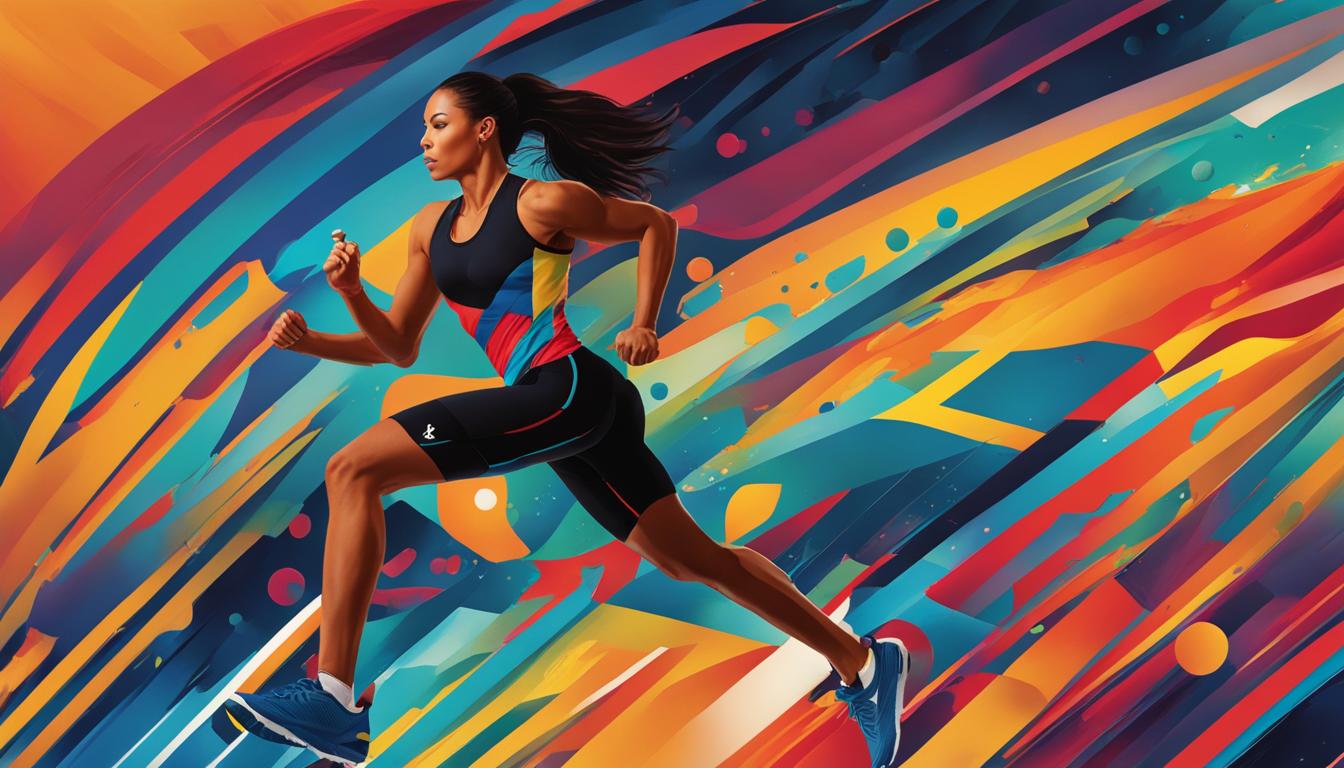


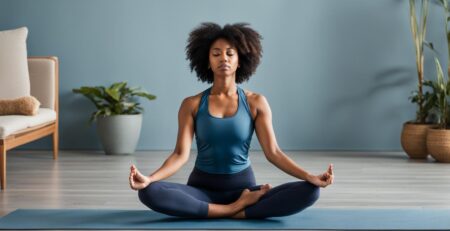
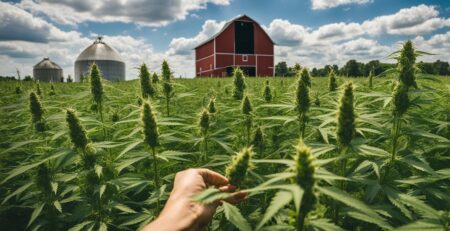
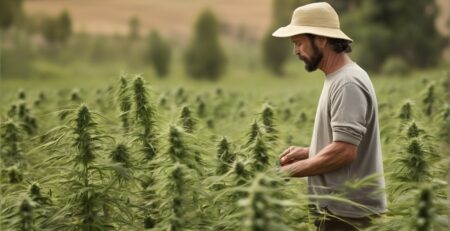
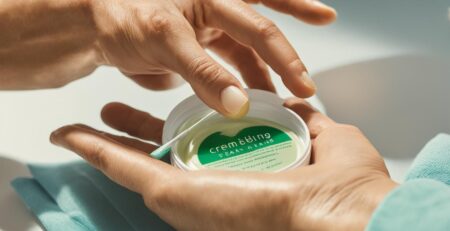




Leave a Reply